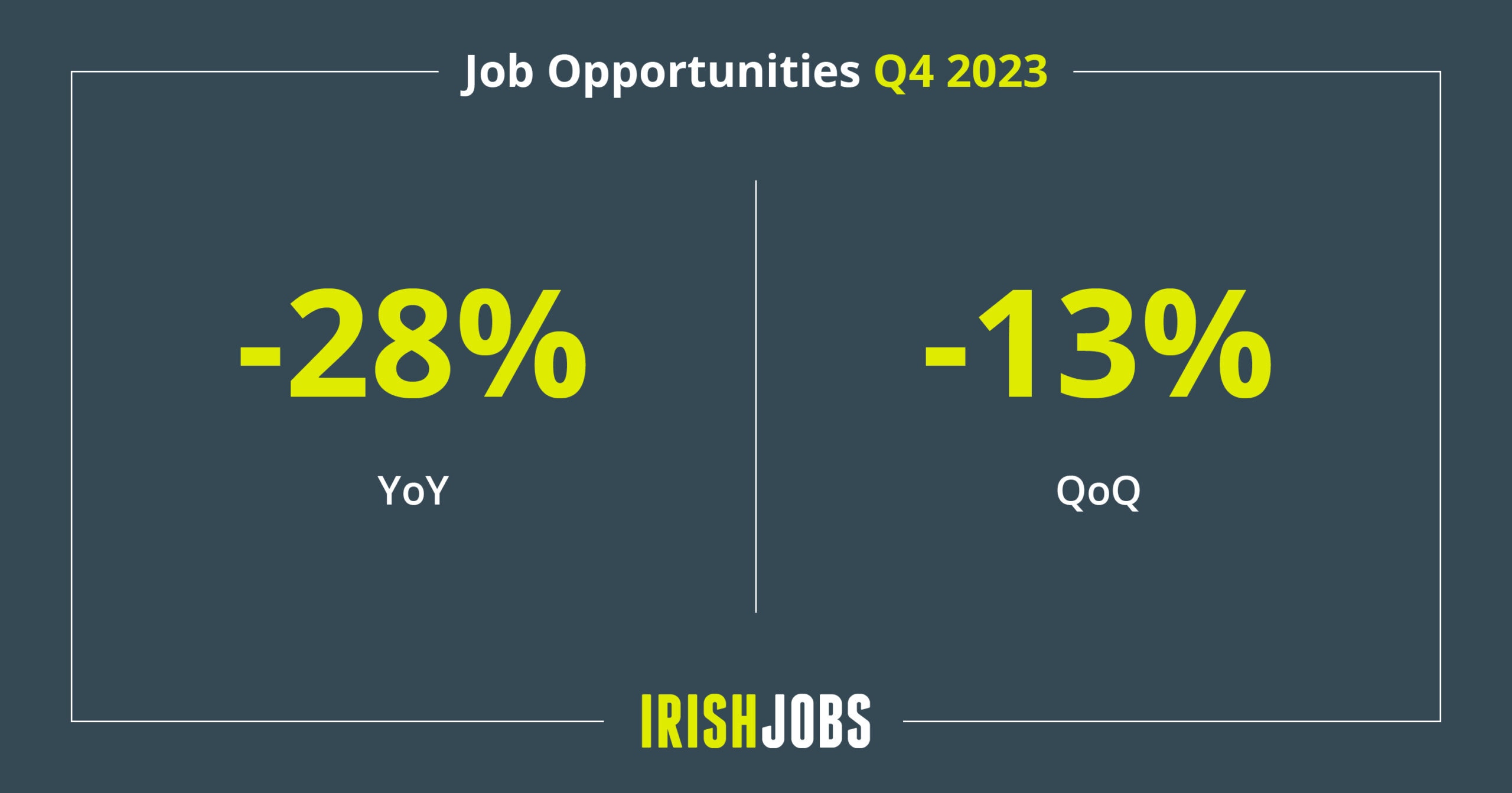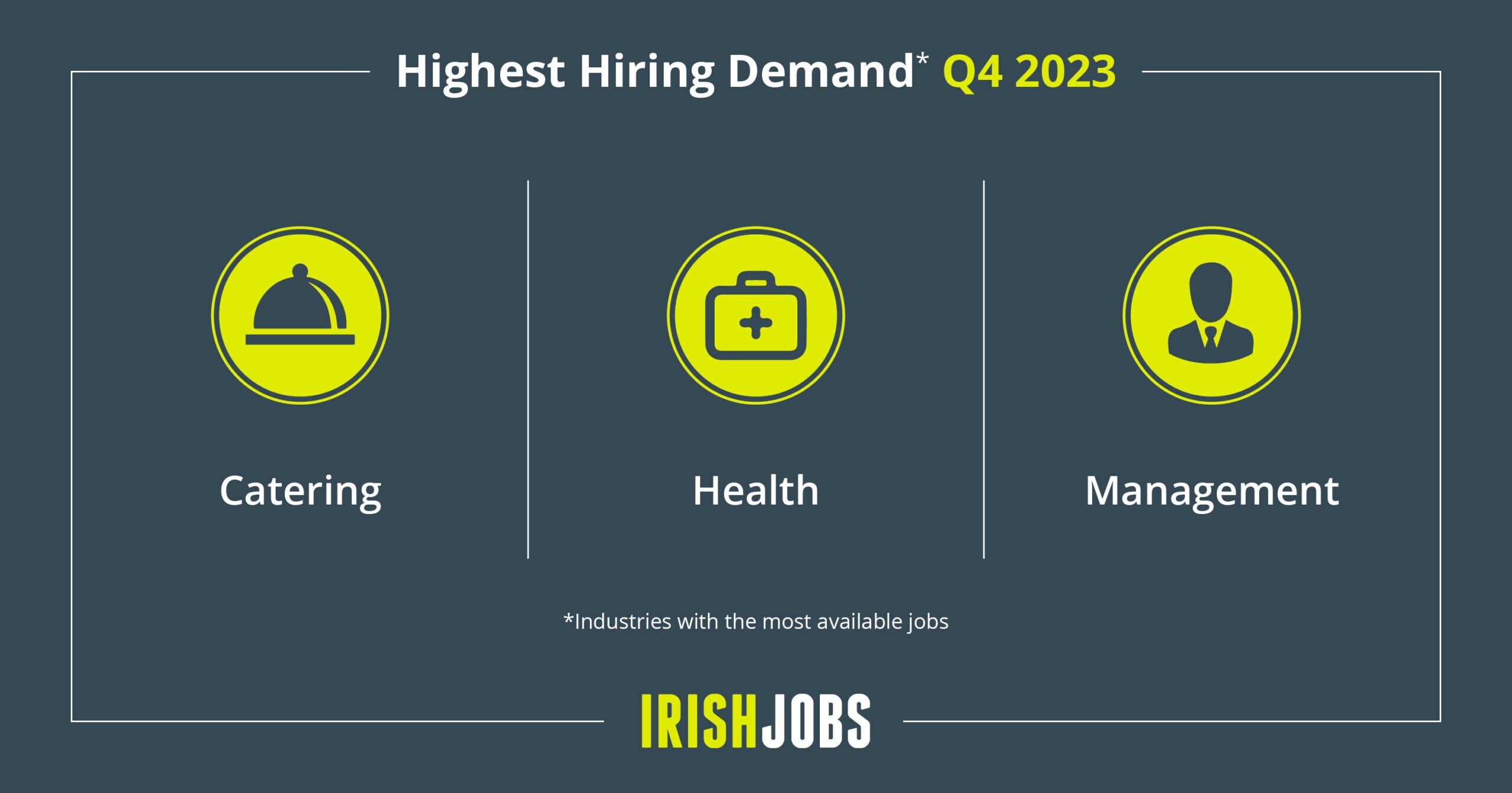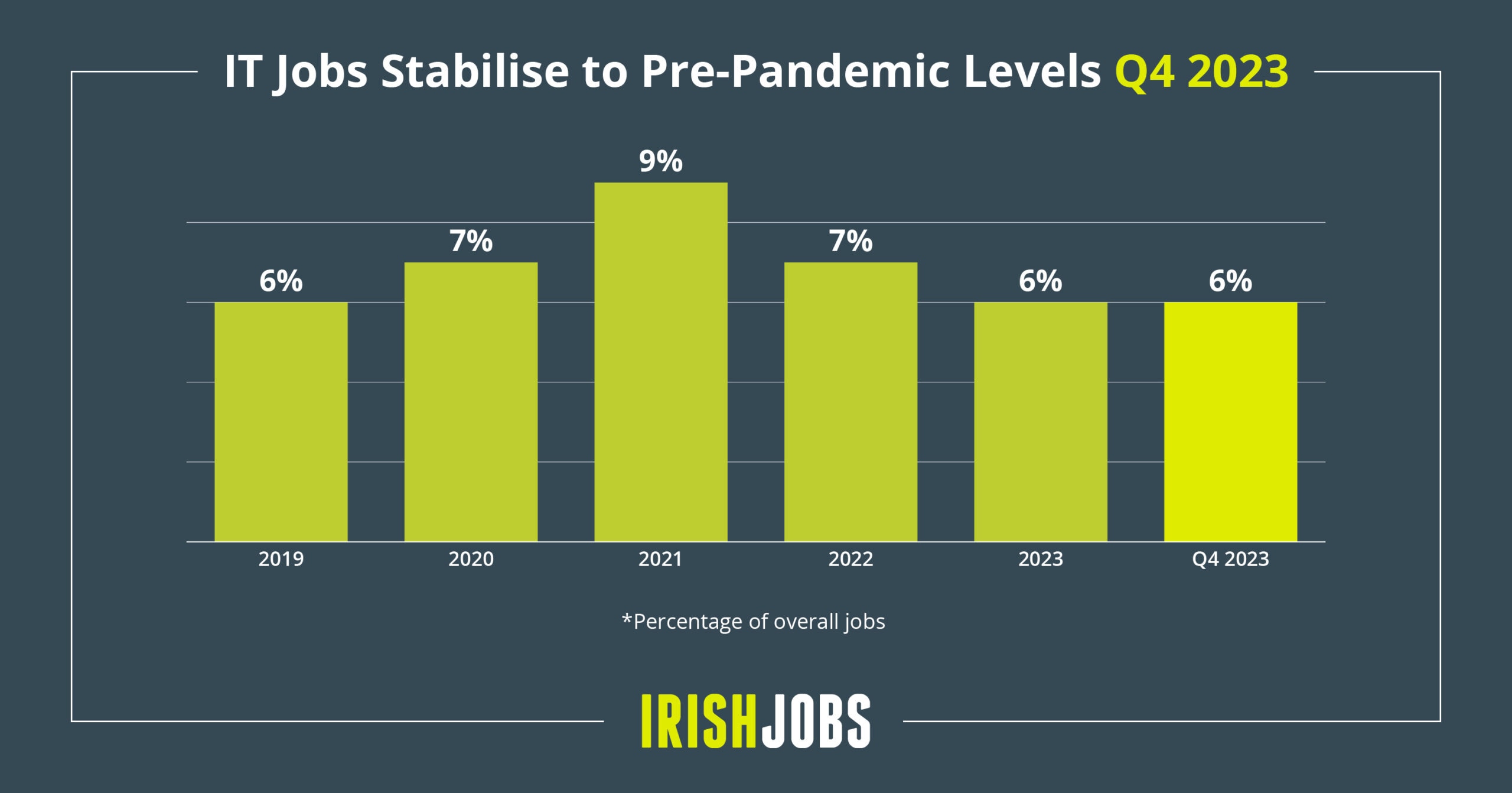The latest Jobs Index indicates the job market is continuing to normalise following a hiring surge in recent years, with jobs easing back 28% year-on-year in the final three months of 2023. While recruitment levels moderated, jobseeker activity increased by 6% compared to the previous year.
Jobseeker activity is a measure of demand for new roles in the jobs market. This activity is captured by examining the keyword search volumes on search engines actively seeking new roles.

Jobseeker activity
An increase in jobseeker activity combined with moderating hiring activity may relieve some pressure on employers in 2024 who have experienced significant challenges in attracting and hiring talent. While these pressures are unlikely to be completely alleviated against a backdrop in which unemployment is expected to remain under 5% and skills shortages persist in certain sectors, it may provide a window of opportunity for businesses to better meet their talent needs.

IT sector
The IT sector continues to be one of the largest sources of professional vacancies in the jobs market, accounting for 6% of all jobs advertised in the quarter and in total across 2023. In 2022, the sector accounted for 7% of all jobs advertised across Ireland. Job vacancies in the sector in Q4 were on par with levels in the sector in 2019, indicating the sector has rebalanced following a period of hypergrowth during the pandemic.
Data from IrishJobs on the most frequently posted job openings by employers in 2023 showed that demand remained resilient across the year for a wide range of roles in the IT sector. Lead Data Architects and Data Security Officers were among the most in-demand roles in the sector last year, indicating a rising demand for data management skills as more organisations develop AI and big data capabilities.

Construction
The Construction sector experienced a modest Q-o-Q increase (2%) in job vacancies, reflecting high levels of demand for skills in the sector to meet national housing targets. A recent analysis of searches by businesses in the IrishJobs CV database TalentBank, which contains the profiles of over 1.2 million job candidates, revealed that construction roles, including Site Managers and Site Engineers, were among the most sought-after professionals in 2023.
Remote Working
Remote/working-from-home vacancies fell for the second successive quarter, dropping by 20% in Q4. This followed an earlier rebound in remote/working-from-home vacancies in Q2 this year. While the rate of the decrease in Q4 was significantly faster than the decline in overall vacancies, it is unclear whether the Q4 figures point to a long-term stabilisation, or even reduction, of the level of homeworking in Ireland.
In a continuing trend for 2023, employers in cities including Dublin (74%) and Limerick (15%) were responsible for the vast majority of working-from-home vacancies in Q4. This data indicates that homeworking in Ireland is strongly driven by the pressures of commuting into large metropolitan centres.
2024 Outlook
With unemployment likely to remain under 5% in the months ahead, a competitive market for talent is set to continue in 2024. Addressing this challenge and the skills shortages across certain sectors, more companies are expected to take a skills-based hiring approach to securing potential talent. Skills-based hiring looks beyond traditional markers such as years of experience or qualifications in evaluating candidates and screens for specific competencies, focusing on the skills that are most applicable to the role.
Sam Dooley, Country Director of The Stepstone Group Ireland with responsibility for IrishJobs, said:
“The IrishJobs Jobs Index provides a key insight into changing trends in the jobs market. Although there are signs of limited softening in the labour market, The Central Bank expects unemployment to remain under 5% indicating a relatively stable and competitive market for talent is set to continue this year.
In line with this trend of stabilisation, hiring has continued to moderate over the past quarter, with job vacancies declining at a quarterly and yearly rate, from previous highs.
Despite this moderation, the job market remains dynamic, with an increase in candidates seeking new roles in the final three months of 2023, a time when traditionally we’d see jobseeker activity ease back. Taken together, these trends may offer some respite to recruiters. Increased demand for new roles combined with moderated levels of hiring can provide a window of opportunity for employers to better meet their talent needs.
Hiring activity remains cautious across many sectors, impacted in part by slower expected levels of growth in the domestic economy in 2024. Significantly, the construction sector posted a quarterly increase in job vacancies, reflecting the high levels of demand for skills to support progress on Ireland’s residential housing targets. IrishJobs’ analysis revealed an ongoing skills shortage in the sector, with construction roles such as Site Managers and Site Engineers among the most highly sought-after professionals in 2023.
With a competitive environment for talent likely to continue this year, we expect more employers to take a skills-based approach to hiring potential talent over the coming months. By looking beyond traditional measures, such as years of experience in screening candidates and focusing on the right skills that are the most relevant to the role, employers can secure the right talent to grow and evolve with their business.”
